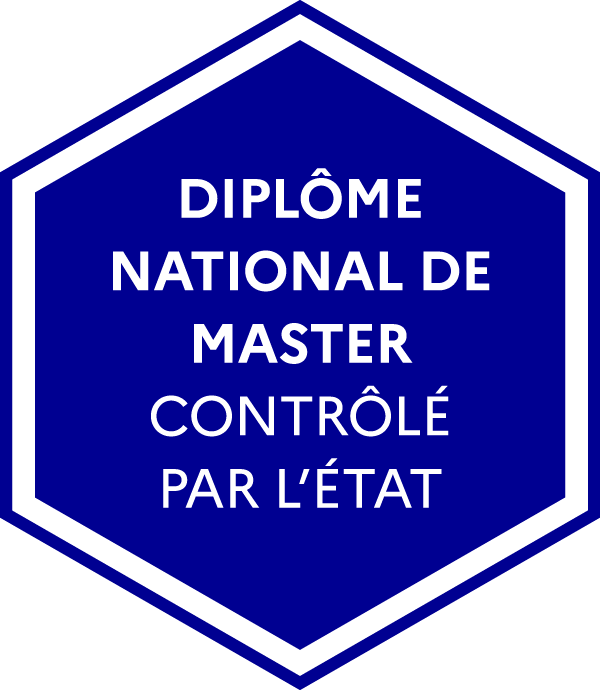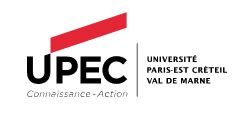Master's degree Mechanics


Entry requirements
A general Licence degree in mechanics, physics or maths with a suitable foundation in solid and fluid mechanics. For the second year, students who have passed the first year of the Master’s in Modelling and Simulation in Fluid Mechanics and Heat Transfer are automatically accepted. Second-year applicants who hold a different first-year Master’s, an engineering degree or a foreign degree and have sufficient training in fluid mechanics and numerical methods are accepted based on their application.
Benefits of the program
One of the aims of the Modelling and Simulation in Fluid Mechanics and Heat Transfer programme is to give students high-level scientific skills in modelling and numerical simulation in fluid mechanics and heat transfer, including from a practical point of view. To this end, 30% of the course in the first year and 50% in the second year are based on concrete simulation projects involving the different physical phenomena covered in class. In this way, students are familiarised with every stage of the project, from definition, implementation and validation to presentation of the results.
Acquired skills
Ability to understand, analyse and model physical phenomena in solid and fluid mechanics and the associated types of transfer.
Ability to implement numerical methods by developing prototype codes.
Mastery of the leading commercial codes used in this field in industry and research laboratories.
Ability to present findings in writing and orally in French and English.
International
Students can spend a semester abroad as part of the Erasmus Mundus network or do their Master 2 work placement abroad.
Capacities
Université Gustave Eiffel : 18
UPEC : 18
Course venue
Your future career
Graduates can work as computational engineers, research and development engineers or consultants in the field of fluid mechanics, heat transfer and energy. The main sectors concerned are energy, the environment, transport (automotive, aeronautics, naval, etc.) and materials processing (metals, glass, plastics, etc.). Graduates of this specialisation can also pursue a PhD. They can then go into teaching and/or research in a university, institute, school or national or international organisation.
Professional integration
Sectors recruiting:
• Energy and the environment,
• Transport (automobile, aeronautics, aerospace, naval, rail),
• Housing,
• Materials processing (metallurgy, plastics, glass),
• Engineering and consulting, IT engineering services company,
• Food industry, etc.
Skills in mechanics are required in all sectors of industry.
Careers:
• Computational and simulation engineer,
• Research and development engineer,
• Mechanical engineer,
• Consultant in the fields of mechanics and energy,
• Project manager, business engineer.
Further study:
This course also prepares students for research professions in the fields of fluid mechanics and heat transfer. Graduates of this specialisation can also pursue a PhD. They can then enter professions in higher education and/or research at universities, institutes, schools and national or international organisations.
Study objectives
The Modelling and Simulation in Fluid Mechanics and Heat Transfer programme of the Mechanics Master’s is designed to equip students with the following skills:
- mastery of the general theories, concepts and tools in the fields of fluid mechanics and transfer;
- ability to analyse and summarise complex information;
- ability to solve a problem independently;
- ability to launch and complete a numerical modelling project.
More specifically, students acquire the following skills:
- ability to understand and analyse the physical phenomena involved in fluid mechanics and heat transfer as well as notions of solid mechanics;
- ability to model these phenomena mathematically at the scale of the material and notions of the microscopic scale;
- ability to implement and analyse the associated numerical methods (finite differences, finite volumes, finite elements) by developing prototype codes using programming languages (Matlab, Fortran or C);
- mastery of the leading commercial codes in the field that are widely used in industry and research laboratories (ANSYS, Fluent, Comsol-Multiphysics, etc.) ;
- ability to present findings in writing and orally in French and English.
Major thematics of study
In the first year of the Modelling and Simulation in Fluid Mechanics and Heat Transfer Master’s:
Continuum mechanics and thermomechanics;
Fluid mechanics; elasticity;
Heat transfer (conduction, convection, radiation);
Modelling and numerical simulation of flows and heat transfer;
Numerical analysis and scientific computing;
Programming in Fortran and Matlab;
Acoustic waves;
English.
In the second year of the Modelling and Simulation in Fluid Mechanics and Heat Transfer Master’s:
Physics and turbulence modelling;
Multiphase flows and phase change;
Flows and transfers in porous media;
Fluid / structure interaction;
Advanced use of CFD simulation programs;
The finite volume method;
Numerical simulation projects.
Calendar
Term starts: end of September in M1 and M2;
Term ends: end of May in M1 and mid-February in M2;
M2 work placement starts: mid-February; defence: mid-September.
Options
In the first year, the Modelling and Simulation in Fluid Mechanics and Heat Transfer programme has three optional units. One unit focuses on radiation heat transfer and its simulation. Another unit focuses on forced and natural convection in pipes and external flows, with applications to heat exchangers. The final unit focuses on advanced fluid mechanics (compressible and non-Newtonian flows) and includes practical work in which experimental techniques (laser Doppler velocimetry, thermometry, viscosimetry) and specific physical phenomena (boiling, radiation transfer, etc.) are presented.
Back-to-school date
09-23-2024
Semester 1
| Courses | ECTS | CM | TD | TP |
|---|---|---|---|---|
|
TC-1-1 Elasticité
Fundamentals of continuum mechanics for deformable solids. strain and stress modeling. Behaviour elastic solid laws whith linear and anisotropic behaviour. Energy and variational theorems within numerical approximation method. | 6 | 27h | 18h | |
|
TC-1-2 Dynamique des fluides
Fundamentals of continuum mechanics for fluids and heat and mass transfers. Fluid dynamics and thermomechaics. Modelling of incompressible/compressible and laminar/turbulent flows. Kinematics; continuity and Navier-Stokes equations; kinetics energy and Bernoulli theorems; dynamical and thermal boundary layers. | 6 | 30h | 18h | |
|
TC-1-3 Outils pour le calcul numérique
Tools for numerical computation (Fortran 95) and learning of Linux OS, solving of simple linear algebra and numerical integration problems | 3 | 3h | 15h | |
|
TC-1-4 Analyse numérique et calcul scientifique (ANCS)
Numerical analysis and scientific calculus. Fundamentals of the numerical analysis of systems of differential equations; optimisation and solving technics | 6 | 18h | 24h | |
|
TC-1-4-1 Analyse numérique et calcul scientifique 1 (ANCS1)
Fondements de l’analyse numérique, méthodes d'interpolation, d'intégration numérique, et de résolution d'équations différentielles ordinaires.
Teaching language FRANÇAIS / FRENCH | 3 | 9h | 12h | |
|
TC-1-4-2 Analyse numérique et calcul scientifique 2 (ANCS2)
Fondements de l’analyse numérique, méthodes de résolution numérique de grands systèmes linéaires et de calcul des valeurs et vecteurs propres.
Teaching language FRANÇAIS / FRENCH | 3 | 9h | 12h | |
|
TC-1-5 Simulation numérique en mécanique
Numerical simulation in solid and fluid mechanics. Introduction to the modeling of mechanical systems and heat of fluid flows (CFD). Learning of the softwares ANSYS / Fluent and Comsol Multiphysics. | 6 | 18h | 36h | |
|
TC-1-5-1 Simulation numérique en mécanique des solides
Introduction à la modélisation des systèmes mécaniques. Apprentissage des logiciels Comsol Multiphysics / ANSYS
Teaching language FRANÇAIS / FRENCH | 3 | 9h | 18h | |
|
TC-1-5-2 Simulation numérique en mécanique des fluides
Introduction à la modélisation et simulation des écoulements et transferts associés. Apprentissage des logiciels ANSYS / Fluent
Teaching language FRANÇAIS / FRENCH | 3 | 9h | 18h | |
|
TC-1-6 Anglais
Technical English. Oral and written comprehension | 3 | 21h |
Semester 2
| Courses | ECTS | CM | TD | TP |
|---|---|---|---|---|
|
TC-2-1 Méthodes numériques pour la mécanique
Numerical methods for solving of the partial differential equations encountered in continuum mechanics and thermal engineering. Introduction to the finite element and finite difference methods | 6 | 24h | 21h | |
|
TC-2-1-1 Méthodes numériques pour la mécanique (EF)
Méthodes de résolution numérique des équations aux dérivées partielles issues des problèmes posés en mécanique des solides. Introduction à la méthode des éléments finis.
Teaching language FRANÇAIS / FRENCH | 3 | 12h | 10.5h | |
|
TC-2-1-2 Méthodes numériques pour la mécanique (DF)
Méthodes de résolution numérique des équations aux dérivées partielles issues des problèmes posés en mécanique des fluides et des transferts. Introduction à la méthode des différences finies.
Teaching language FRANÇAIS / FRENCH | 3 | 12h | 10.5h | |
|
TC-2-2 Ondes acoustiques
Acoustic waves. Introduction to wave propagation in fluids | 3 | 12h | 6h | 6h |
|
TC-2-3 Transferts de chaleur par conduction
Conduction heat transfer. 1D transient heat conduction : lumped system analysis and conduction in semi-infinite solids. Multidimensionnal transient conduction : method of separation of variables and superimposition principle. | 3 | 12h | 9h | |
|
Techniques d'expression française et anglaise / Option A
Written and oral communication in French and English langages | 3 | 9h | 12h | |
|
Stage / Option B
| 3 | |||
| PARCOURS FLUIDE (inscription UGE) : | 15 | |||
|
MFT-2-1 Convection thermique, échangeurs
Introduction to heat convection and heat exchangers. Natural and forced convection. Internal and external convection. Thermal boundary layer. Integral and affine methods. Laminar and turbulent convection.
Teaching language FRANÇAIS / FRENCH | 5 | 21h | 18h | 6h |
|
MFT-2-2 Dynamique des fluides et expériences
In-depth fluid mechanics : isentropic and non-isentropic compressible flows with chock waves; non newtonian flows. Experiments in fluid mechanics and heat transfer.
Teaching language FRANÇAIS / FRENCH | 6 | 15h | 12h | 21h |
|
MFT-2-2-1 Dynamique des fluides approfondie
Dynamique des fluides approfondie. Ecoulements compressibles isentropiques et non-isentropiques et ondes de choc droites et inclinées. Ecoulements non newtoniens, newtoniens généralisés et visco-élastiques.
Teaching language FRANÇAIS / FRENCH | 4 | 15h | 12h | 6h |
|
MFT-2-2-2 Activités expérimentales
Mesures expérimentales en mécanique des fluides et transferts thermiques.
Teaching language FRANÇAIS / FRENCH | 2 | 15h | ||
|
MFT-2-3 Rayonnement thermique
Physical description and numerical modeling of radiative heat transfer. Radiative heat transfer in non-participating media between gray and diffuse surfaces, and coupling with the other heat transfer modes. Radiative transfer equation in participating media and simplified models. Presentation of the numerical models used in ANSYS-FLUENT and applications to heat transfer for different optical thicknesses.
Teaching language FRANÇAIS / FRENCH | 4 | 15h | 6h | 9h |
| PARCOURS SOLIDE (inscription UPEC) : | 15 | |||
|
MS-2-1 Mécanique des structures
Structure mechanics. Introduction to the modeling of structure mechanics
Teaching language FRANÇAIS / FRENCH | 6 | 21h | 15h | |
|
MS-2-2 Comportement mécanique des matériaux
Materials mechanical behaviour : modelization and testing
Teaching language FRANÇAIS / FRENCH | 6 | 36h | 15h | 9h |
|
MS-2-2-1 Comportement anélastique des matériaux
Comportement anélastique des matériaux : thermoélasticité, viscoélasticité, plasticité
Teaching language FRANÇAIS / FRENCH | 3.5 | 18h | 9h | 9h |
|
MS-2-2-2 Essais mécaniques
Caractérisation mécanique des matériaux : traction, fluage, rupture
Teaching language FRANÇAIS / FRENCH | 2.5 | 18h | 6h | |
|
MS-2-3 Ondes élastiques
Mechanical waves. Introduction to wave propagation in solids
Teaching language FRANÇAIS / FRENCH | 3 | 12h | 6h | 6h |
CHENIER Eric (M1-M2)
NICOLAS Xavier (M1)
Partners


